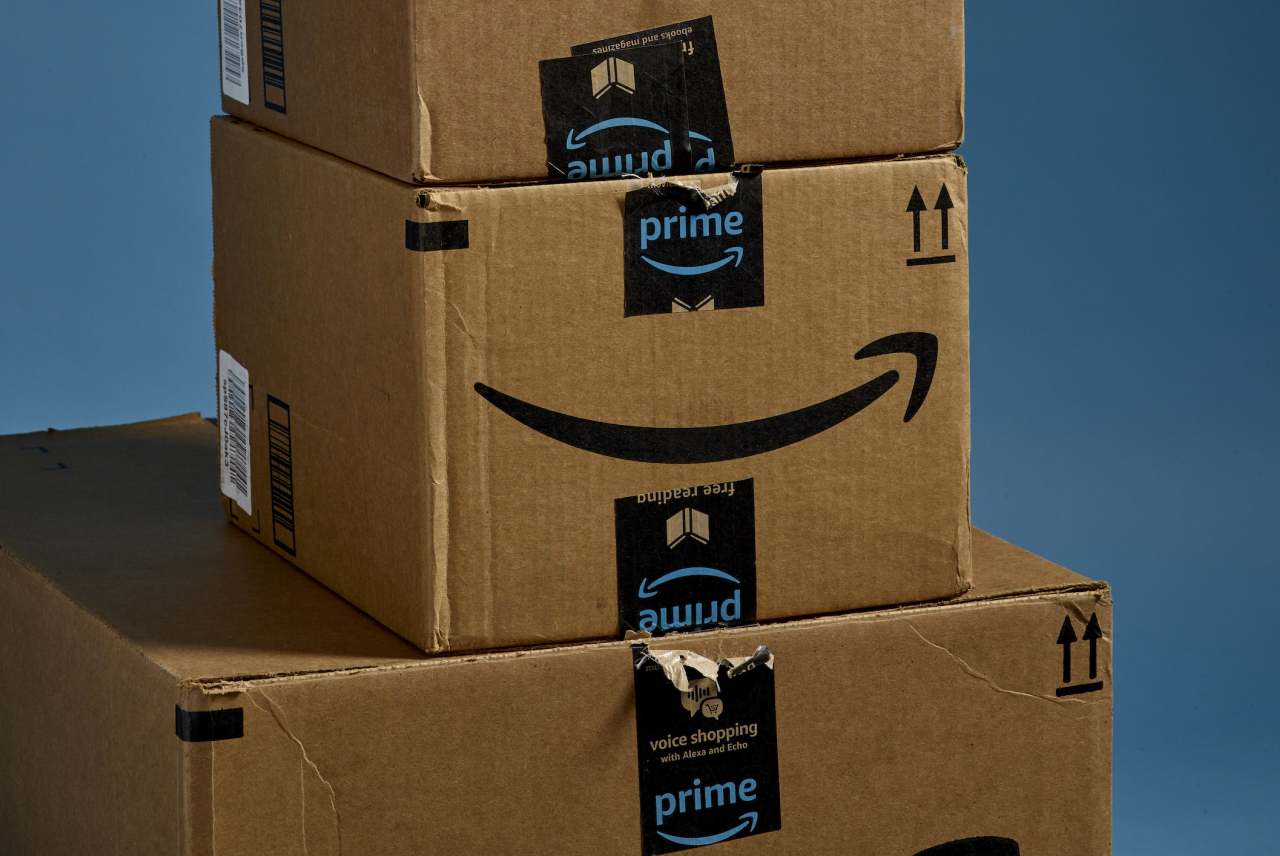Amazon Prime Day is the online giant’s biggest day for sales in the year. In 2019 the company sold more than 175 million items during the two day period in which it promotes discounts across its website.
1. Amazon has enforced unsafe working conditions during Covid19.
Since the beginning of the pandemic, employees at Amazon facilities have repeatedly accused the company of enforcing dangerous conditions on workers. They say that the online giant did not provide sufficient sanitiser and wipes, allowed overcrowding in certain areas of the warehouses, and failed to shut some facilities where a worker had tested positive for adequate cleaning.
Many also say that by failing to provide sick leave for flexible workers, the company has forced employees to continue working even with symptoms. Amazon workers have held protests in Italy, France, the US and other countries.
In early October, Amazon announced that almost 20,000 of its warehouse workers in the US had tested positive for coronavirus since the beginning of the pandemic. Although the company suggests that this represents a rate far lower than that in the public, many of its workers have suggested otherwise.
According to a leaked study, the rate of Covid19 cases at one of its Minnesota warehouses was at least four times that of the surrounding community.
2. In fact, Amazon has treated its workers poorly for years.
Amazon worker interviewed by TUC:
I am pregnant and made to stand and work for 10hrs without a chair, they constantly mention my idle time and they are telling me to work hard even though they know I am pregnant. I am feeling depressed when at work.
Over recent years, there have been repeated reports of Amazon abusing its workers in Europe and the USA.
In October 2020, TUC released a report about Amazon’s mistreatment of its employees. It found that employees in Amazon warehouses worked 55 hour weeks/ 10 hour days on average, were expected to pack around 300 items per hour, and were harassed, disciplined or fired if they failed to meet their targets. Workers felt unable to take breaks or visit the bathroom, and sometimes had to urinate in bottles.
The report linked the gruelling conditions to serious accidents or workplace exhaustion, finding that over a three year period, ambulances had been called out 600 times to 14 Amazon warehouses in Britain.
One facility alone saw 115 emergency calls, compared to only 8 over the same period at a similar sized supermarket distribution centre just a few miles away.
3. Amazon is damaging small independent businesses (and passing the cost of its tax avoidance onto its small business sellers).
In April, Amazon was announced as the ‘mystery’ £250,000 donor to a hardship fund for independent bookshops closed due to Covid19. But many critics have highlighted the hypocrisy of the gesture from the company, which has a market value of over $1 trillion.
The Booksellers Association called the gesture an “ill-judged attempt to mitigate a decades-long campaign to undermine the bookselling sector”.
Bookshops are not the only independent retailers that believe themselves to have been damaged by Amazon’s monopoly. In 2016, a survey found that 90% of independent retailers said that the growth of the company was having a damaging impact on their revenue.
More recently, in August 2020, Amazon announced it’s intention to pass the cost of a new tax, aimed to ensure that online conglomerates like Amazon would pay their fair share, on to its own small business sellers. The company increased its sale fees by 2%, after the UK Government announced a 2% digital services tax on the revenues of search engines, social media services and online marketplaces.
4. It perpetuates racism through its technology.
Amazon has enabled racial-bias and racial profiling through its technology.
In 2018 and again in 2020, testing of Amazon’s ‘Rekognition’ facial software showed it to be fundamentally racially-biased. The software was found to disproportionately identify black members of Congress or Parliament as people who had been arrested and mugshots held in a police database.
Amazon has since announced a one-year moratorium on the use of its facial recognition software by police, but digital rights group Fight for the Future called it “nothing more than a public relations stunt.”
Joy Buolamwini, co-author of the 2018 report into Rekognition’s bias said:
“Amazon’s approach thus far has been one of denial, deflection, and delay. We cannot rely on Amazon to police itself or provide unregulated and unproven technology to police or government agencies.”
The company’s home surveillance arm, Ring, has also been accused of encouraging racial profiling.
Ring has over 200 partnerships with police departments in America, through several of which it has incentivised police to encourage community use of its neighbourhood watch app. A review of over 100 posts on the app found that the majority of people reported as ‘suspicious’ by users were people of colour.
5. Amazon sells its services to fossil fuel companies.
Amazon has been criticised for “helping fossil fuel companies accelerate and expand oil and gas extraction” in 2019, after it was revealed to have been offering special technology services to fossil fuel companies including Shell and BP.
Amazon is accused of ‘aggressively courting’ the industry and offering machine learning and AI technologies to enable fossil fuel extraction at a time when “it is imperative most fossil fuels be left in the ground if we are to avoid severe climate disruption”.
Amazon was also found to have sponsored a 2020 event held by the Competitive Enterprise Institute, a think tank well known for spreading climate denial misinformation. As a lot of the funding for these groups is secret, any information that comes to light looks significant.
6. It’s failed to address its own environmental impacts.
Early this year, Amazon announced its target to be carbon neutral by 2040. Yet, the company has failed to explain how it plans to reduce its carbon footprint over the coming decades.
Currently, the company reports its emissions at 44.4 million tons CO2e a year - which is equivalent to about 55.5million return passenger flights from London to New York. This is without even including its supply chain for its goods, which in Amazon’s case is likely to represent over 75% of its total footprint.
When Amazon workers spoke out, the company threatened to fire employees for criticising its practises publicly. Over 350 workers published statements in solidarity, condemning the company’s bullying and calling for stronger commitments.
7. In fact, the company has repeatedly fired whistleblowers.
Campaigners say that Amazon has fired at least six whistleblowers who have spoken out against the company’s poor practices since the outbreak of the coronavirus pandemic. Employees say they were fired after organising petitions or protests about the lack of safety precautions at its warehouse facilities.
Tim Bray, a Senior Vice President at the company who resigned in protest, stated that Amazon’s justifications for the firings “were laughable; it was clear to any reasonable observer that they were turfed for whistleblowing.”
8. It faces questions over spying on politicians and trade unions.
Earlier this month, a group of MEPs wrote to Jeff Bezos - Amazon’s founder and chief executive - after evidence emerged that the company may be spying on politicians and trade union workers.
The company published two job posts in August for ‘intelligence analysts’ in the US, the roles for which included investigating the threat of organised labour against the company and monitoring ‘hostile political leaders’.
The company deleted the job posts after they were widely publicised, and has since stated that they were inaccurate and posted in error. But MEPs also expressed concern over “increasing warnings about your company’s anti-union policy”.
9. Amazon facilitates Trump’s deportation regime.
According to the activist group Mijente, Amazon has contracts with the Department of Homeland Security in the United States. US authorities are said to use Amazon hosting services for software that tracks down immigrants, who are then detained and deported by Immigrations and Customs Enforcement (ICE).
Trump’s anti-migrant policies were widely condemned after it emerged that they were sanctioning the separation of children from their parents, and denying the rights of immigrants, in particular asylum seekers, at the US border.
In 2018, it also emerged that Amazon had met with ICE officials to pitch the use of its (racially-biased) facial recognition software to identify immigrants.
10. It is an aggressive tax avoider.
We estimated that in 2017 the UK lost £52 million from Amazon’s tax avoidance due to profit shifting alone - and that this was just the tip of the iceberg. By doing everything from registering its UK profits in Luxembourg to deferring its taxation by investing for its monopoly, the company has aggressively avoided paying its share to the public purse.
In 2019, its key UK business paid just 3% more in tax compared to 2018, despite its pre-tax profits growing by more than 35%.
Paul Monaghan from the campaign organisation Fair Tax Mark says,
"Amazon is growing its market domination across the globe on the back of income that is largely untaxed, allowing it to unfairly undercut local businesses that take a more responsible approach. Contrived financial arrangements lie at the heart of Amazon’s success.”
Ethical Consumer continues to call for a boycott of Amazon over its outrageous tax avoidance.




